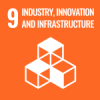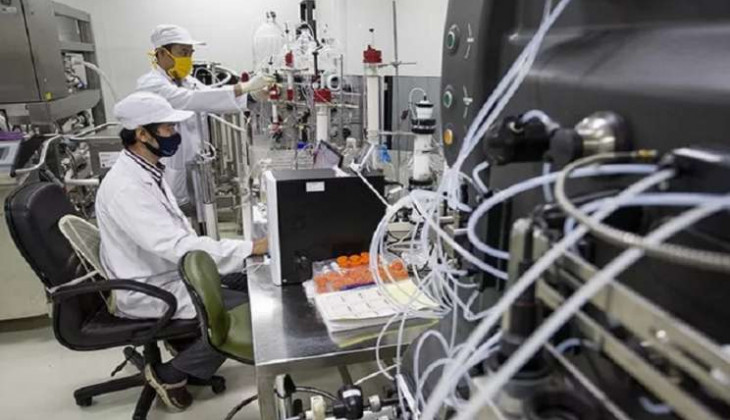The government strives to continue to provide infrastructure support such as equal access to the internet network and open collaboration and funding programs for health development companies (health-tech) to increase efficiency and respond to challenges in health for the benefit of the community. Dr. Didik Budijanto, Director of P2PTVZ of the Indonesian Ministry of Health, encourages the implementation of various digital innovations during this pandemic to support access, sustainability, and public health response to the pandemic.
Through the Ministry of Health, the government has relaxed the regulation of telemedicine services directly to consumers, although it is still limited to the issuance of circulars. The government has issued several regulations. For example, the Ministry of Health has issued the Minister of Health Regulation Number 46 of 2017 concerning the National e-Health Strategy as a basis and Minister of Health Regulation Number 20 of 2019 concerning the Implementation of Telemedicine Services among Health Facilities.
Unfortunately, these regulations have not fully regulated the legal auspices, supervision, and quality assurance support from regulators for health innovation developers. On the other hand, users of digital health services are also entitled to guarantee the quality, security, and protection of personal data for digital health services.
It is recorded that more than 170 startups engaged in health-tech are members of the Indonesian HealthTech Association. Most of these developers have collaborated with the government. They are officially registered at the Ministry of Communication and Information as the Operator of Electronic Systems and Transactions. However, so far none of these digital technology developers has received legal protection from the Ministry of Health.
Although some of these digital companies have signed a Memorandum of Understanding with the Ministry of Health, the Ministry of Health has not implemented the mechanism for monitoring and quality assurance of health applications properly. To contribute to solving this problem, Universitas Gadjah Mada interdisciplinary research team is currently conducting a study on the Regulatory Sandbox mechanism that can be implemented in the digital health sector.
In Indonesia itself, the regulatory sandbox approach by the Financial Services Authority (OJK) through OJK Regulation Number 13/POJK.02/2018 concerning Digital Financial Innovation is still aimed at the financial services and financial technology sectors. As one of the activities in the research, the UGM research team led by Dr. Elsa Herdiana Murhandarwati in collaboration with the Ministry of Health, UNICEF, the Indonesian Healthtech Association, and the Center for Digital Society (CfDS) FISIPOL, UGM held a hybrid seminar entitled “Welcoming the Regulatory Sandbox of Health & Guidebook Review on the Regulatory Sandbox for e-Malaria”.
Didik Budijanto, Director of P2PTVZ of the Indonesian Ministry of Health, Setiaji, and Daniel Oscar Baskoro from the Digital Transformation Office, Ministry of Health, dr. Adhiatma Gunawan, Head of Medical Good Doctor Indonesia, dr. Gregorius Bimantoro, chairman of the Indonesian Healthtech Association, and Septiaji Eko, from Siberkreasi Indonesia attended this event.
Daniel Oscar Baskoro, Advisor to the Ministry of Health’s Digital Transformation Office, said the inter-sector collaboration carried out by the UGM research team is central in ensuring the improvement of the digital ecosystem of the health sector in Indonesia. Innovation in the startup industry certainly requires large amounts of operational costs.
“This will certainly eliminate sectoral egos and encourage collaboration with the involvement of the government, the private sector, and the community. There should be no overlap or inefficiency in developing innovations in the health-tech sector,” said Daniel Oscar Baskoro, at Ambarukmo Hotel, Yogyakarta, Wednesday (16/6).
Dr. Adhiatma as Head of Medical Good Doctor Indonesia said that the proposed implementation of the Regulatory Sandbox system which is being studied by the UGM research team also received support from the PSE of the health sector in Indonesia. He said that with the increase in industry players in the health-tech sector, the Regulatory Sandbox system can support the existing regulatory umbrella and legal governance regarding digital innovation in the health sector in Indonesia. Hence, there is clear standardization in the use of digital technology innovations to ensure comfort and safety.
“Digital transformation in the health sector is not only about improving infrastructure and digital innovation, but also about the literacy of users or the Indonesian community. This is considering the high cases of misinformation and disinformation in the health sector in Indonesia’s digital space,” he explained.
Septiaji Eko from Siberkreasi Indonesia added that in May 2021, Siberkreasi in collaboration with the Indonesian Ministry of Communication and Informatics released a digital literacy curriculum for Indonesians. And for the next five years, the Ministry of Communication and Information has a target to expand the reach out of community digital literacy training.
Literacy includes digital culture, digital ethics, digital safety, and also digital skills. The increase in digital literacy, which includes the four pillars, is expected to encourage the digital transformation of the health sector as well.
“This is necessary by considering the high number of cases of spreading misinformation and health disinformation in the digital space,” he explained.
In the event, the UGM research team also released the Regulatory Sandbox Guidebook for e-Malaria in Indonesia. The research team represented by dr. Elsa and also Dr. Rimawati explained the Regulatory Sandbox trial plan included in the study activity.
Dr. Gregorius Bimantoro from the Indonesian Healthtech Association said there are four technological innovation clusters offered, including the External Quality Assurance Cluster (PME), Surveillance, Telediagnostics or Teleconsultation, and other supporting clusters. Electronic System Operator Partners (PSE) who participate in the trial will get on-hand experience related to the flow and scoring system implemented in the Regulatory Sandbox.
According to him, one of the important things in the Regulatory Sandbox is the existence of a sustainable business model that can be maintained by PSE. “In addition to the challenges related to funding for health-tech startups, we also need to pay attention to how PSE can create innovation programs by developing a sustainable program business model,” he explained.
The Chief DTO of the Ministry of Health, Setiaji, also supports the study conducted by the UGM team. According to him, this study is in synergy with the spirit of the Ministry of Health to accelerate digitization in the health service sector.
“The Indonesian Ministry of Health recently established a Digital Transformation Office (DTO) as a form of the Ministry of Health’s commitment to supporting the acceleration of digitizing the health sector in Indonesia,” he said.
Source: https://ugm.ac.id/id/berita/21260-percepatan-digitalisasi-sektor-kesehatan-di-indonesia



